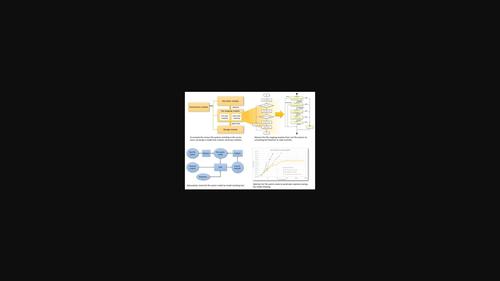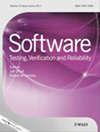Comprehensive evaluation of file systems robustness with SPIN model checking
IF 1.2
4区 计算机科学
Q3 COMPUTER SCIENCE, SOFTWARE ENGINEERING
引用次数: 1
Abstract
In existing computer systems, file systems are indispensable for organizing user data and system codes. However, several studies have reported certain file system errors that cause significant data loss or system crashes. Most of these errors are due to external failures, such as an unexpected power outage. However, comprehensively evaluating file system robustness to detect these errors is challenging. The various types of file systems use different data structures and algorithms for various applications. Moreover, file system errors may be triggered by an unpredictable external condition. In addition, a file system works in an operating system's kernel layer as a passive module and runs in a multi‐thread mode, which makes file system testing time‐intensive. Furthermore, the large number of states in file systems leads to greedy checking, which results in a state explosion. In this study, we comprehensively evaluated the robustness expected in multiple properties of file systems using a model checking approach. The evaluation covered the majority of the mainstream file system types and included both single‐thread and multi‐thread modes. We developed Promela models that abstracted the real file systems and subsequently checked them using a SPIN model checker. Our model was optimized to avoid state explosion during model checking. Using the model checking, we successfully detected corner‐case errors during an unexpected power outage. By analysing counterexamples generated by model checking, we determined an improved file system model capable of preventing errors in most mainstream file system types. Finally, we rechecked the improved file system model and verified the absence of all critical errors.

基于SPIN模型检验的文件系统鲁棒性综合评价
在现有的计算机系统中,文件系统对于组织用户数据和系统代码是必不可少的。然而,一些研究报告了某些文件系统错误会导致严重的数据丢失或系统崩溃。这些错误大多是由于外部故障造成的,比如意外断电。然而,全面评估文件系统健壮性以检测这些错误是具有挑战性的。不同类型的文件系统为不同的应用程序使用不同的数据结构和算法。此外,文件系统错误可能由不可预测的外部条件触发。此外,文件系统作为一个被动模块在操作系统的内核层中工作,并以多线程模式运行,这使得文件系统测试非常耗时。此外,文件系统中的大量状态会导致贪婪检查,从而导致状态爆炸。在本研究中,我们使用模型检查方法全面评估了文件系统多个属性的鲁棒性。评估涵盖了大多数主流文件系统类型,包括单线程和多线程模式。我们开发了Promela模型来抽象真实的文件系统,并随后使用SPIN模型检查器检查它们。对模型进行了优化,避免了模型校验过程中的状态爆炸。使用模型检查,我们成功地检测了意外停电期间的角落案例错误。通过分析模型检查产生的反例,我们确定了一个改进的文件系统模型,能够防止大多数主流文件系统类型的错误。最后,我们重新检查了改进后的文件系统模型,并验证了不存在所有关键错误。
本文章由计算机程序翻译,如有差异,请以英文原文为准。
求助全文
约1分钟内获得全文
求助全文
来源期刊

Software Testing Verification & Reliability
工程技术-计算机:软件工程
CiteScore
3.70
自引率
0.00%
发文量
34
审稿时长
>12 weeks
期刊介绍:
The journal is the premier outlet for research results on the subjects of testing, verification and reliability. Readers will find useful research on issues pertaining to building better software and evaluating it.
The journal is unique in its emphasis on theoretical foundations and applications to real-world software development. The balance of theory, empirical work, and practical applications provide readers with better techniques for testing, verifying and improving the reliability of software.
The journal targets researchers, practitioners, educators and students that have a vested interest in results generated by high-quality testing, verification and reliability modeling and evaluation of software. Topics of special interest include, but are not limited to:
-New criteria for software testing and verification
-Application of existing software testing and verification techniques to new types of software, including web applications, web services, embedded software, aspect-oriented software, and software architectures
-Model based testing
-Formal verification techniques such as model-checking
-Comparison of testing and verification techniques
-Measurement of and metrics for testing, verification and reliability
-Industrial experience with cutting edge techniques
-Descriptions and evaluations of commercial and open-source software testing tools
-Reliability modeling, measurement and application
-Testing and verification of software security
-Automated test data generation
-Process issues and methods
-Non-functional testing
 求助内容:
求助内容: 应助结果提醒方式:
应助结果提醒方式:


